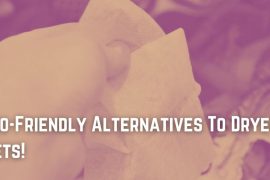With the growing adverse effects of climate change and pollution, people are becoming more conscious of what they use and what harm it has on the environment.
The increasing environmental consciousness is making them question the sustainability of things they use.
One such question is “is canvas eco-friendly?”
Canvas is a plain-woven fabric known for its durability and sturdiness. Canvas is usually used in shopping bags, backpacks, shoes, phone cases, and clothes.
Some people believe canvas is eco-friendly. But research shows that the real story might be different than what you think.
In this blog post, we will explain how the canvas is not as eco-friendly as you think it is and some suitable alternatives to it.
Sustainability of Canvas
Surprisingly, research conducted by Denmark’s Ministry of Education and Food shows that canvas bags may be more harmful to the environment as compared to conventional plastic bags.
This is because one ingredient used in making canvas is cotton. Cotton requires a large amount of water as well as pesticides and herbicides (harmful chemicals to keep away unwanted animals) in the farming process.
In fact, the manufacture of one T-shirt and a pair of jeans utilizes 20,000 liters of water.
The researchers found that a canvas tote bag needs to be used 7,100 times to match the environmental impact of a plastic bag.

This research lines up with another paper published by the UK in 2011.
According to that study, canvas bags have higher global warming potential as compared to their counterparts.
So a canvas bag has to be used thousands of times to be more eco-friendly than a plastic bag.
Canvas also requires more energy in its manufacturing process (and hence more fossil fuel used resulting in more emission of carbon dioxide) leaving a bigger carbon footprint.
Canvas is Recyclable!
Even though canvas has some flaws, the good news is the canvas is 100% recyclable! You can recycle it as many times as you want.
And when you have made the most out of it, you can throw it away and it won’t pollute the landfills for long.

But we recommend donating rather than throwing it away because the canvas is washable and mendable. It can be easily recycled into something else.
So, just donate it to your local thrift store to give it a new home.
However, if canvas gets treated with chemicals during production, it may become non-recyclable. We recommend not throwing away that type of canvas.
Canvas Can Decompose
Although it takes a long time to break down, the canvas is completely biodegradable.

Since it is made of natural materials, microorganisms can completely decompose canvas without adversely affecting the environment. Breakdown of canvas does not release toxic chemicals.
It is important to note that some canvases have been blended with PVC. This type of canvas takes up to 250 years to completely break down.
FAQs
What is canvas made of?
Canvas is made of cotton, linen, and occasionally hemp. Some types of canvases also have PVC blended in but they are not as eco-friendly and we do not recommend them for use.
Is canvas vegan and organic?
Yes, the canvas is 100% organic and vegan. Canvas is made from plant and natural sources. The manufacturing process of canvas requires no animal products or by-products. So, it is safe to say canvas is vegan.
What other materials can we use instead of canvas?
Hemp is a more sustainable and eco-friendly material than canvas. Hemp can generate a significantly higher yield when harvested as compared to cotton (the raw material of canvas).





